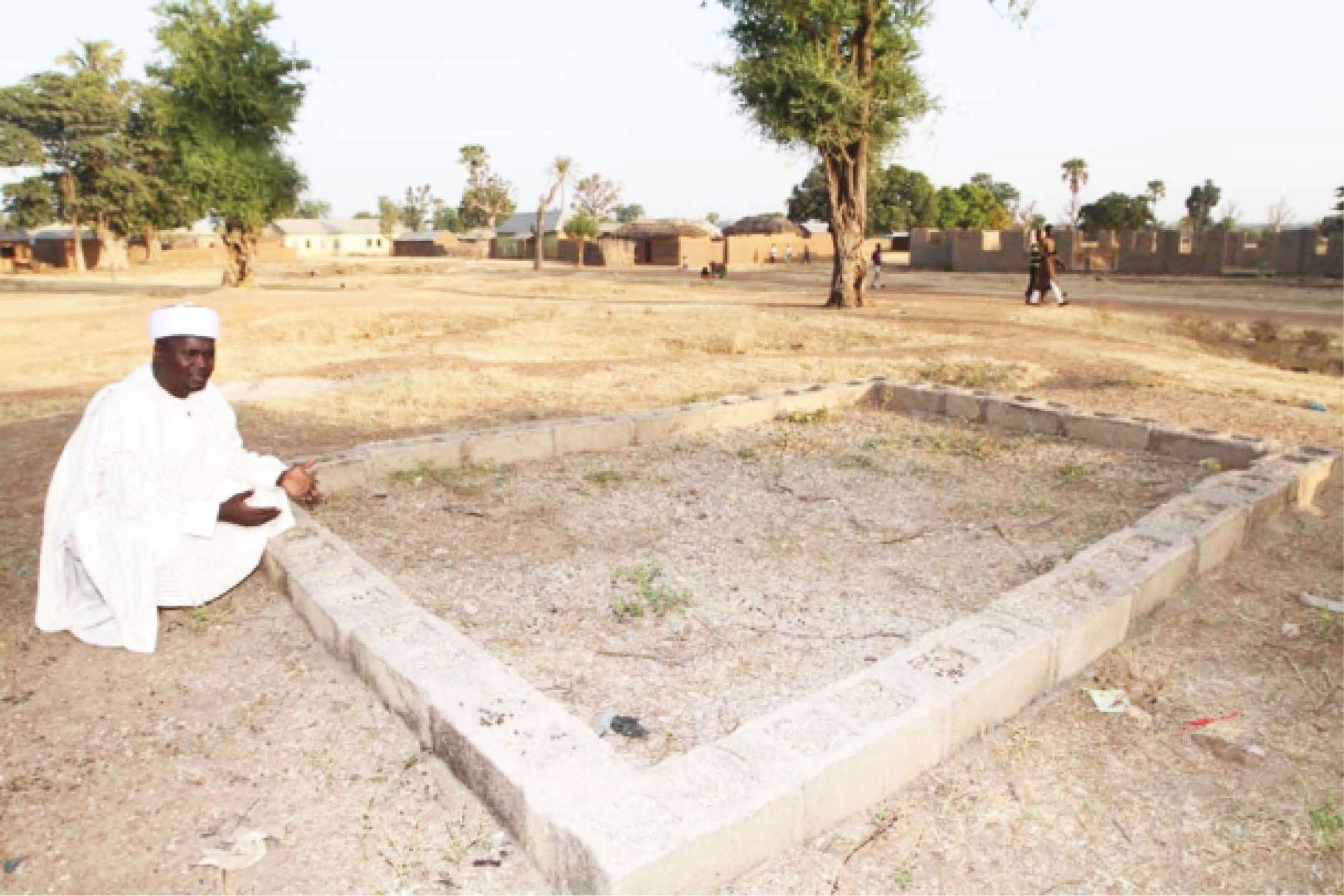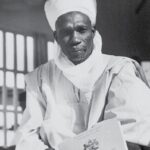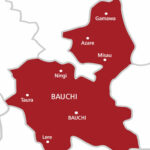Alhaji Ado Danrimi Garba, the Wakilin Tarihin Bauchi and head of the Bauchi Emirate Centre for History, Research and Documentation and Royal Gallery, has revealed how four out of six graves of former emirs of Bauchi were scattered and abandoned in different locations.
Garba said the first emir was the founder of the Bauchi Emirate, Malam Yakubu, who established the city between 1809 and 1812. He died in 1845 and was buried at Dajin.
- Commuters stranded as commercial bus drivers embark on strike
- National security: Imperative of paradigm shift now!
Dajin is the name of the royal grave inside the emir’s palace in Bauchi. It is also the name of one of his concubines in whose room he died.
Before his death, the emir had told his disciples and other royal slaves that he wanted to be buried around the wall inside Dajin’s room. He directed that they should dig his grave beside the wall, believing that as time went on, rain, time and other things would make the grave to disappear.
Malam Ibrahima succeeded him from 1445 to 1877. He died in 1879, at Rauta, now in Toro Local Government Area. After he left Bauchi to establish Kafin Rauta as a frontier force to protect the emirate from the then Ningi forces. He was buried at Rauta, inside his house. He was said to have dug his grave himself before his death. He told his disciples that if he died they should bury him there. They did exactly what he told them to do.
The third emir was Malam Usmanu, the son of Malam Ibrahima, who reigned from 1877 to 1883. During his time, there was civil war in Bauchi, which led to the massacre of many people in the city. As a result of this, the then Sultan of Sokoto, Umar Dan-Aliyu, summoned the people of Bauchi and dethroned the emir. Subsequently, he installed his cousin, Malam Umaru.
After he was deposed from the throne, Usmanu was taken to Wurno in Alkamu district, Sokoto. He died in a village called Dantabau and was buried there.
The fourth emir was Malam Umaru, who ascended the throne from 1883 to1902. He was dethroned during the British occupation of the Bauchi Emirate in 1902.
The colonialists, under the leadership of William Wallace, invaded the city of Bauchi on February 2, 1902, a day after the emir went on exile to Basirka, in present Jigawa State, which was then under Bauchi.
He was there when the colonialists captured him and took him to Lokoja. He spent about two years in Lokoja, where the British authorities imprisoned him because they did not want any link between him and his people.
One of his close allies Ahmadu Maizza, took his son, Yakubu III to Lokoja and there became a series of letters and other forms of communication between the Emir of Bauchi and the Emir of Lafiya Barebari.
Out of the fear that the deposed emir would establish a link with his people, the colonialists moved him to Ilorin. At that time, Emir Suleiman was on the throne of Ilorin.
Problems arose between the British and the Emir of Ilorin.
Umaru was said to be a great warrior, to the extent that almost the entire region was afraid of him, so they took him to Ilorin to show the emir that they had captured the warrior among the monarchs.
Emir Umaru died in Ilorin and was buried there. His grave was close to the market, by the roadside, but there was road construction and it was moved from its initial location.
On the day they wanted to exhume and move him to another location, there was a miraculous drama as his body was still fresh. Up till today, his grave is under the custody of the Emir of Ilorin, who built a room for it and assigned a woman to look after it.

The fifth emir was Muallayadi, the son of Malam Ibrahim. He reigned for only nine months in 1902 and died in Bauchi. His grave is still in the royal Dajin, inside the emir’s palace
The sixth emir was Malam Hassan, the son of Mahmudu, who succeeded Muallayadi from 1902 to 1907. He died in Bauchi and his grave is in Dajin graveyard.
The seventh emir was Malam Yakubu Maigari II, who was the son of the emir that was deposed and sent to Sokoto. His reign lasted for over 30 years, from 1907 to 1941. He died in Bauchi and was buried at the Dajin graveyard.
The eight emir was Malam Yakubu Maje Wase III, the son of Malam Umaru, who was banished to Ilorin. He retired to Wase in the present Plateau State and left Bauchi in October 28, 1954 for Wase. He died in April 24, 1964 in Wase, where he was buried.
The ninth emir was Malam Adamu Jumba, whose reign lasted from 1954 to 1982. He died in Bauchi and was buried inside the Dajin graveyard.
Furthermore, the 10th emir was Malam Suleimanu Adamu, who reigned between 1982 and 2010. He died in Bauchi and was also buried at the Dajin graveyard.
The Wakilin Tarihin Bauchi, explained that out of the 10 late emirs, only six were buried in the palace.
He said the grave of one of the emirs, Malam Umaru, was preserved, but that of Ibrahima was not properly identified until he went to Rauta village and gathered the people of the area. According to him, when they were able to discover the grave, the village head of Rauta was directed to put some structures for identification.
For the grave of Maje Wase, there was a time his son, Sarkin Yamma Muhammadu went there and found out that it was in a critical condition. Consequently, he approached the Emir of Wase and requested to repair the grave of his father, but the emir declined, saying he was also his father; hence he would do the repairs himself. So the grave is now inside a room at the Wase palace.
The grave of Malam Usmanu in Sokoto is not yet identified, but some people said they knew its location.

“We have discovered the location he was buried in Dantabau, but we cannot say exactly where the grave is,’’ Garba said.
Daily Trust on Sunday learnt that there are some administrators in Bauchi, such as Tatari Ali, who repaired the grave of Buba Yero in Gombe Abba. Ali built a house for the grave and the structure has become a historical monument as people from far and near visit it to pray for him.
Unfortunately, all the civilian and military governors in Bauchi State have not thought it wise to preserve the tombs of these emirs.
According to Garba, the emirate is concerned about the graves of its past emirs outside the palace because as time goes on, if people who know the locations die and they are not preserved, the graves may disappear.
He said, “We are planning to preserve all the graves outside, just like the one inside the palace. The emirate will appreciate it if the state government makes efforts to preserve them. Such gesture will attract reward from the Almighty Allah.
“The emirate is not moving any of the graves from their present locations. They will remain there, but we will preserve them for people to see. Whoever visits the tombs will be able to identify the emirs. This is because the situation that warranted them to be where they are was destined by God.

“We don’t want to bring any of them back to the palace. We had concluded plans to do the necessary construction to preserve the graves under the leadership of the current emir, Rilwamu Suleiman Adamu. We even concluded a bill of quantity for the project, but the advent of economic recession compelled us to keep the project aside.
“We are appealing to the state government to intervene in the preservation of the graves of the former emirs who were buried outside Dajin. It is a good culture in Islam to preserve the graves of late emirs.
“Although the Bauchi Emirate Council has not officially written to the state government on the need to preserve the graves of Bauchi emirs buried outside the palace, I personally appeal to Governor Bala Mohammed to help us in this regard and Allah will reward him because these were people with proven integrity who served with the fear God.’’

 Join Daily Trust WhatsApp Community For Quick Access To News and Happenings Around You.
Join Daily Trust WhatsApp Community For Quick Access To News and Happenings Around You.


